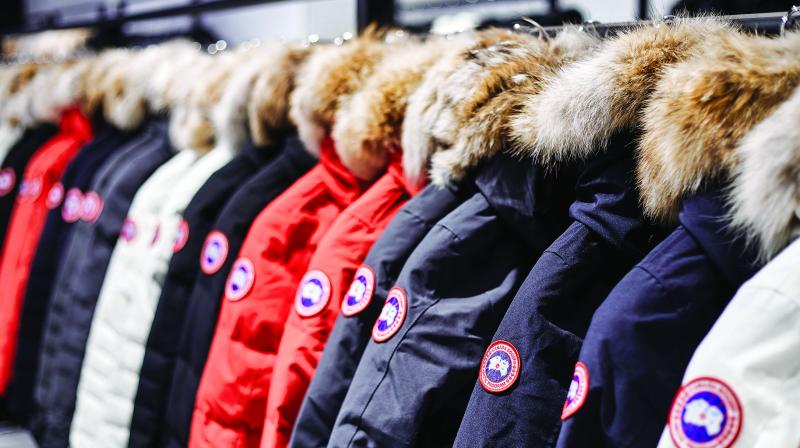A $2.9 billion wipeout ensues when retailers lose the thread
Capri trimmed its sales outlook for the year amid foreign currency weakness and lower revenue from wholesale.

Chicago/New York: For apparel retailers, the plot has to unfold just right for investors to buy into the narrative. And by the market's reaction on Wednesday, they clearly didn't stick to the script.
A trio of companies posted historic stock declines on Wednesday: Abercrombie & Fitch Co., Canada Goose Holdings Inc. and Michael Kors owner Capri Holdings Ltd., together erasing about $2.9 billion in market capitalization. For Abercrombie, weakening sales cast doubt on the company's affirmation that it's in the midst of a sustained rebound.
Capri trimmed its sales outlook for the year amid foreign currency weakness and lower revenue from wholesale. At Canada Goose, a slowdown sparked concerns that its era of rapid growth may be coming to an end.
"Any chink in the armor is a devastating story, which is what you're seeing today," said Alex Arnold, a Managing Sirector of the consumer practice at investment bank Odeon Capital. Investors are sensitive to any signs of trouble with Abercrombie and Capri as both companies adopt new strategies, he said.
Abercrombie shares fell 26 per cent on Wednesday, the most since going public in 1996, while Canada Goose plunged 31 per cent, the most since its 2017 IPO. Capri declined 9.9 per cent.
Those companies were joined after the markets closed by PVH Corp., the owner of the Calvin Klein and Tommy Hilfiger apparel lines, which plunged as much as 8.8 per cent in late trading after reducing its revenue outlook for this year.
The results further underscore how 2019 is shaping up to be a challenging year for retailers, despite an unemployment rate that's hovered near record lows and high consumer confidence. A number of pitfalls are emerging, from US tariffs on Chinese imports to unpredictable weather, as well as shoppers' ongoing migration online.
Abercrombie's latest quarter showed same-store sales growth slowed for its teen-focused Hollister unit, while the company continues to close flagship locations. That outweighed a better-than-expected performance at its namesake brand. While Abercrombie still projects the key measure of comparable sales to rise in the low-single digits this year, the stock performance clearly shows investors' skepticism.
Chief Executive Officer Fran Horowitz said Asia is key to regaining the company's momentum, saying that signs to an improving overseas business will start emerging again at the end of the year.
"We need to get a little closer to the Asian customer and understand that consumer behavior better than we do today," Horowitz said in an interview.
Capri, meanwhile, is struggling to revitalize its biggest brand, Michael Kors, particularly its US operations after years of heavy discounting took a toll on the business. Executives have worked to clear inventory and restore the brand's luster, but comparable sales slid one per cent in the quarter on a constant-currency basis, a bigger drop than analysts predicted. On Wednesday, the company cited issues including not having enough of its Signature collection of bags on hand during the quarter.
The company is banking on its newest luxury divisions -- Versace and Jimmy Choo -- to underpin growth in coming years. It acquired Versace for $2.2 billion and Jimmy Choo for $1.2 billion, both in the past two years. But those prospects failed to sway investors on Wednesday.
Canada Goose may have been the biggest shock. The luxury parka maker has conditioned Wall Street to expect meteoric growth, so when it posted revenue that missed analyst expectations for the first time ever, the reaction was sharp. Its full-year sales forecast also fell short of estimates -- a sign the rapid growth of the past may be waning.
Bloomberg Intelligence analyst Poonam Goyal said cold spring weather contributed to retailers' struggles in the first quarter.
"Essentially stores were selling clearance winter clothing and not full-price spring wear," Goyal said. And while many retailers said there was a pickup in April because Easter was later this year, "trends tell us that the first half of May was weaker."

